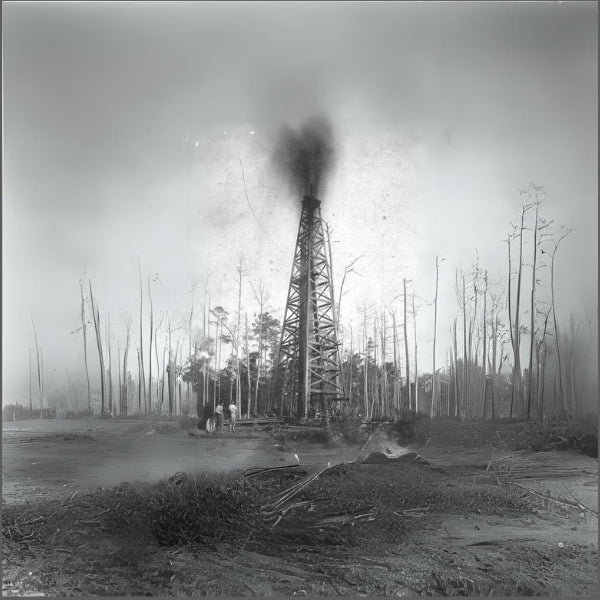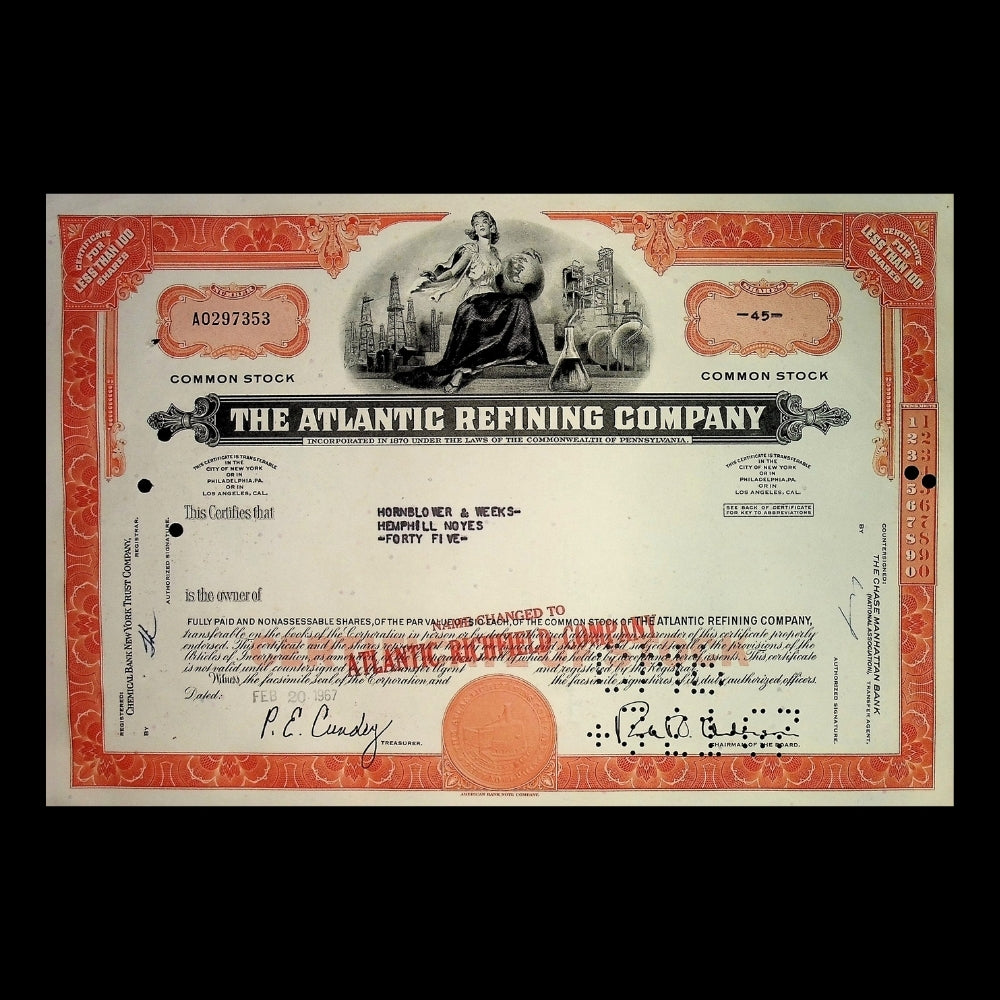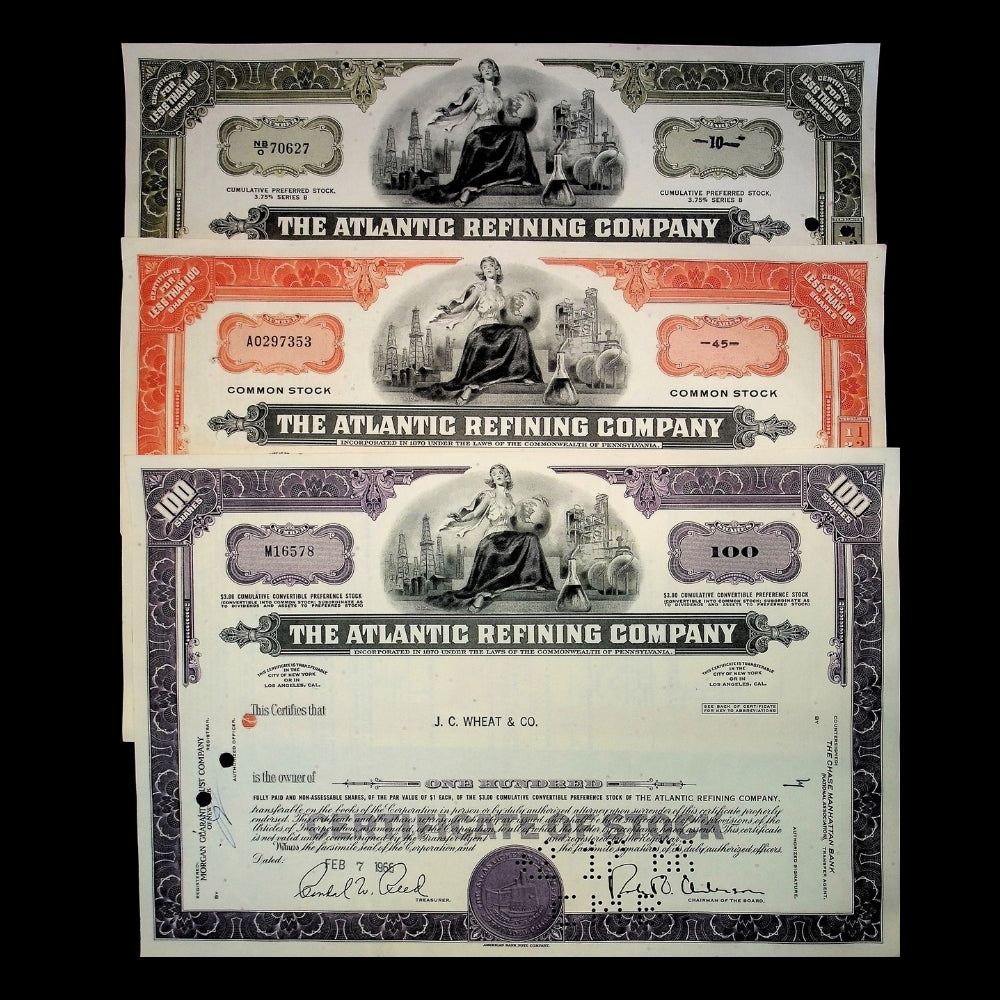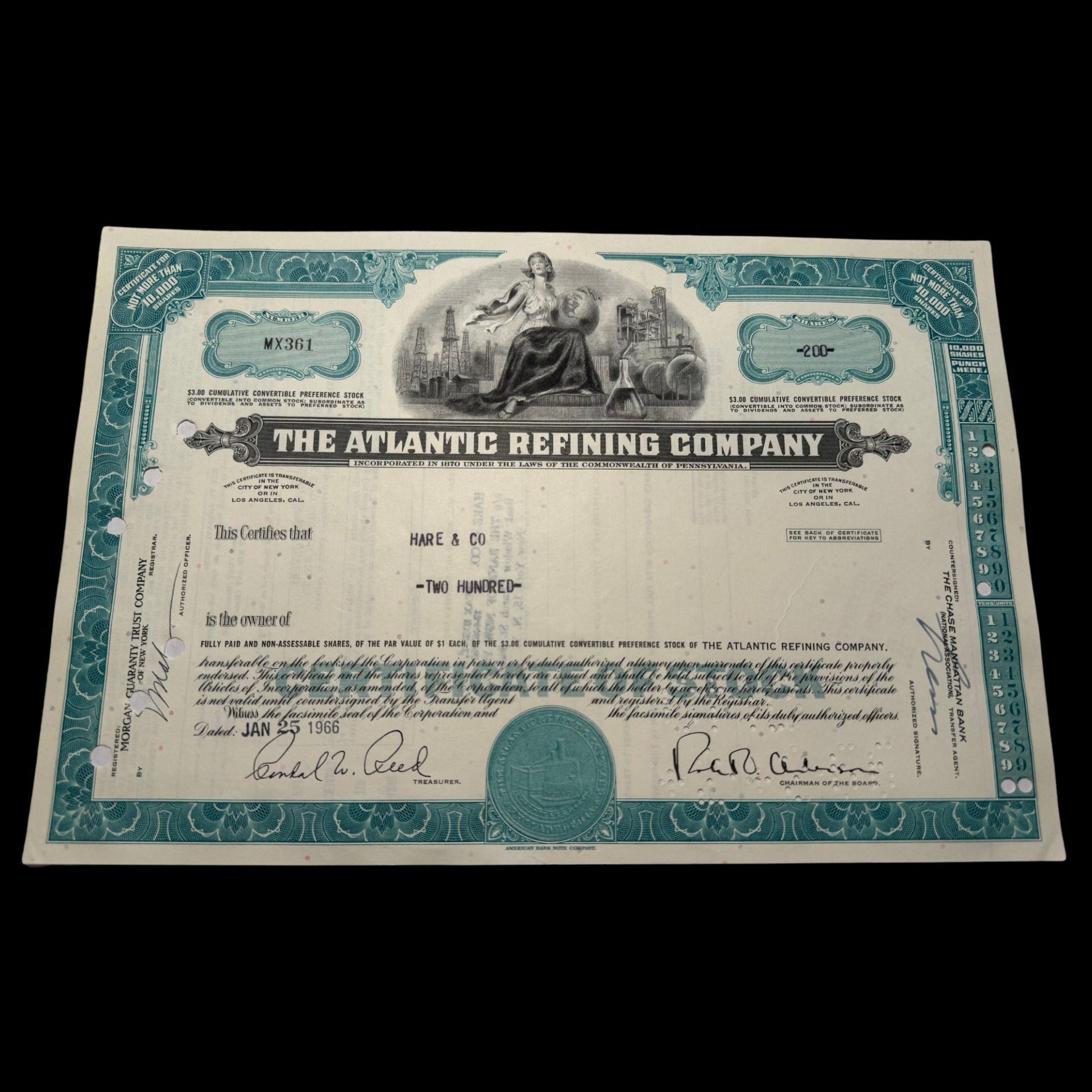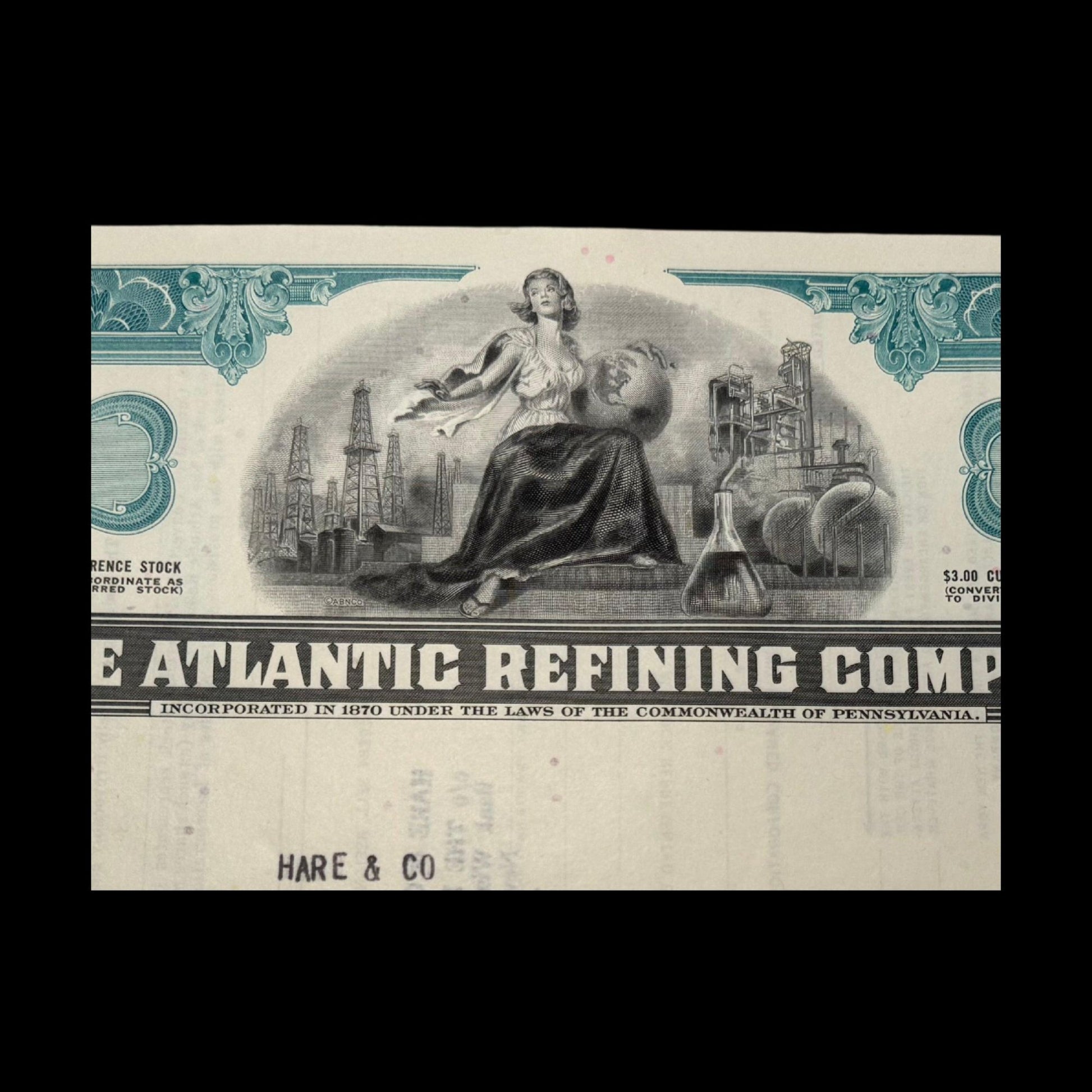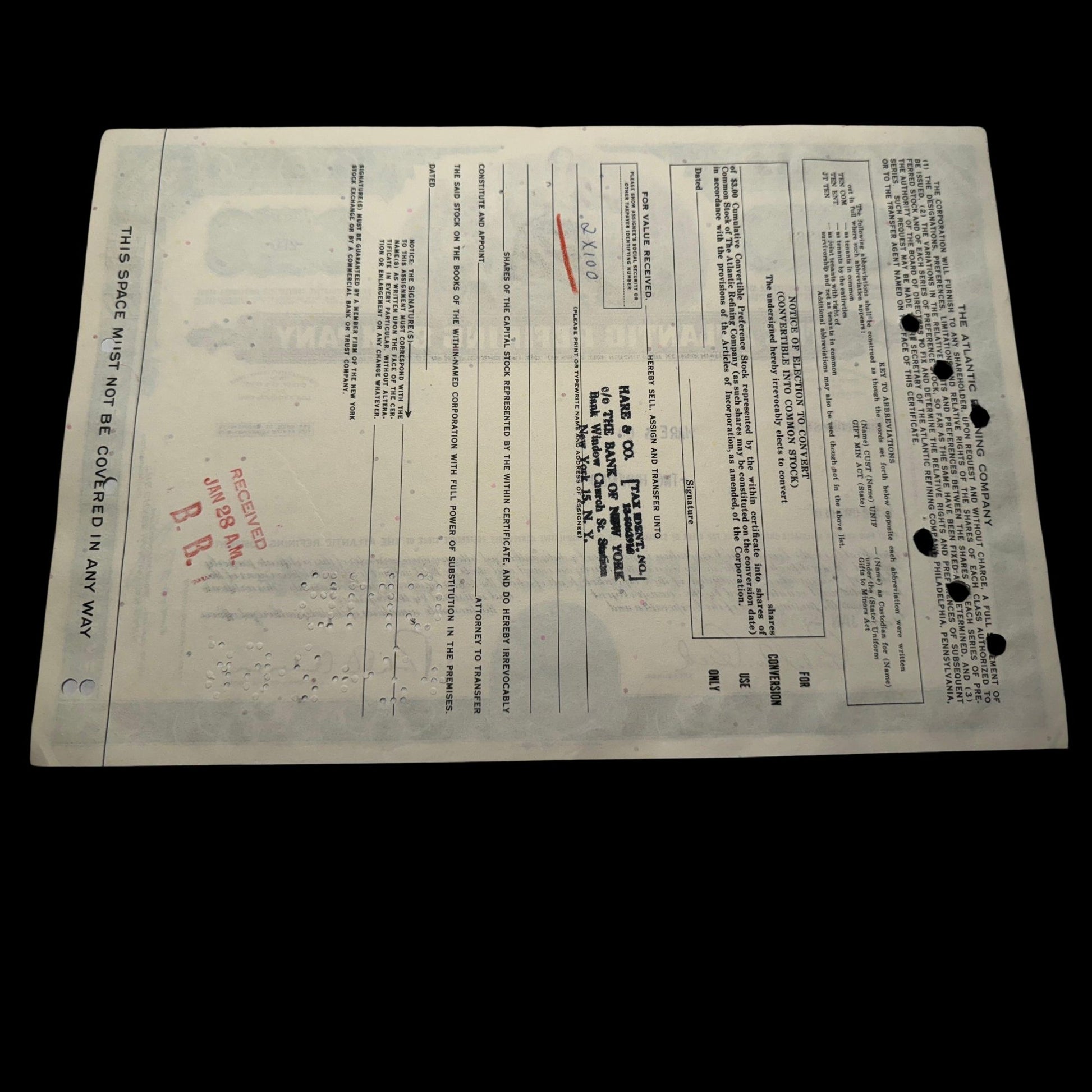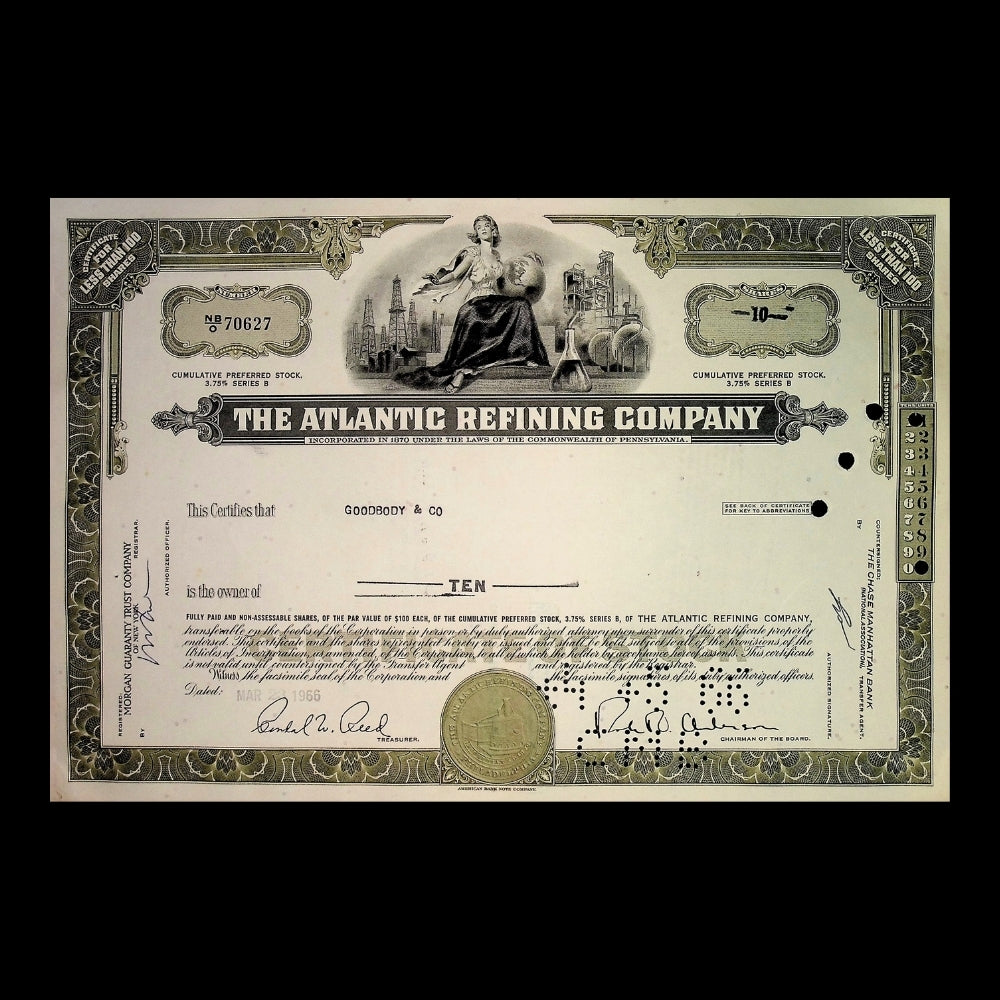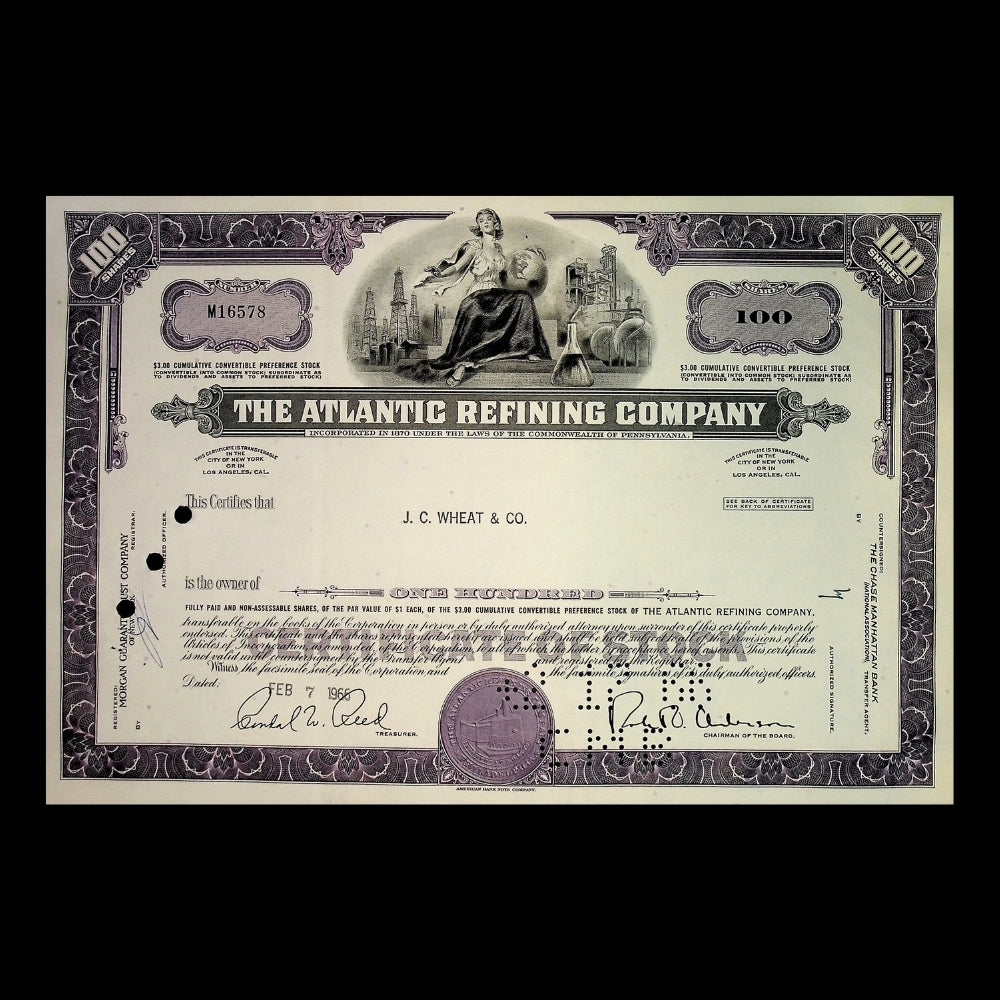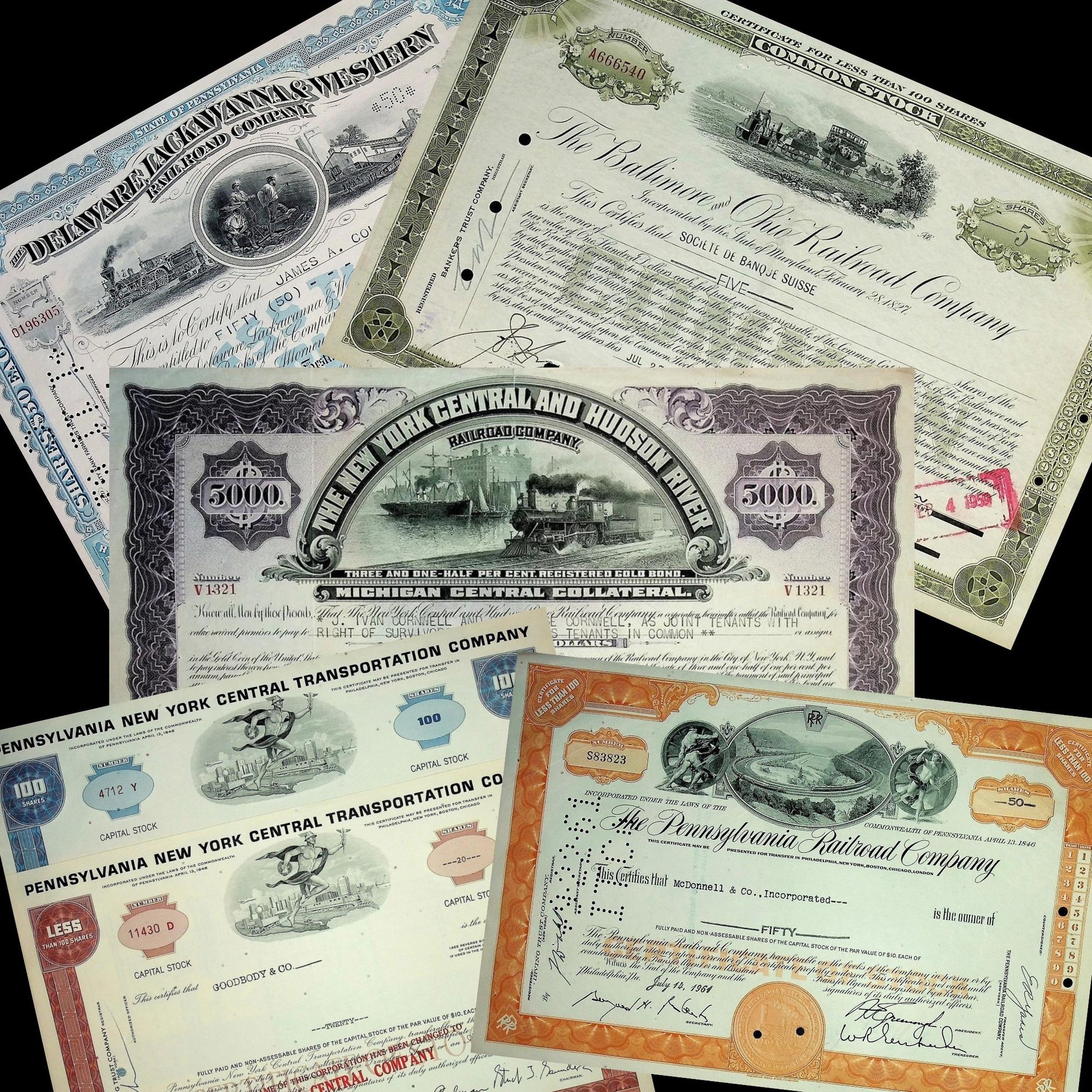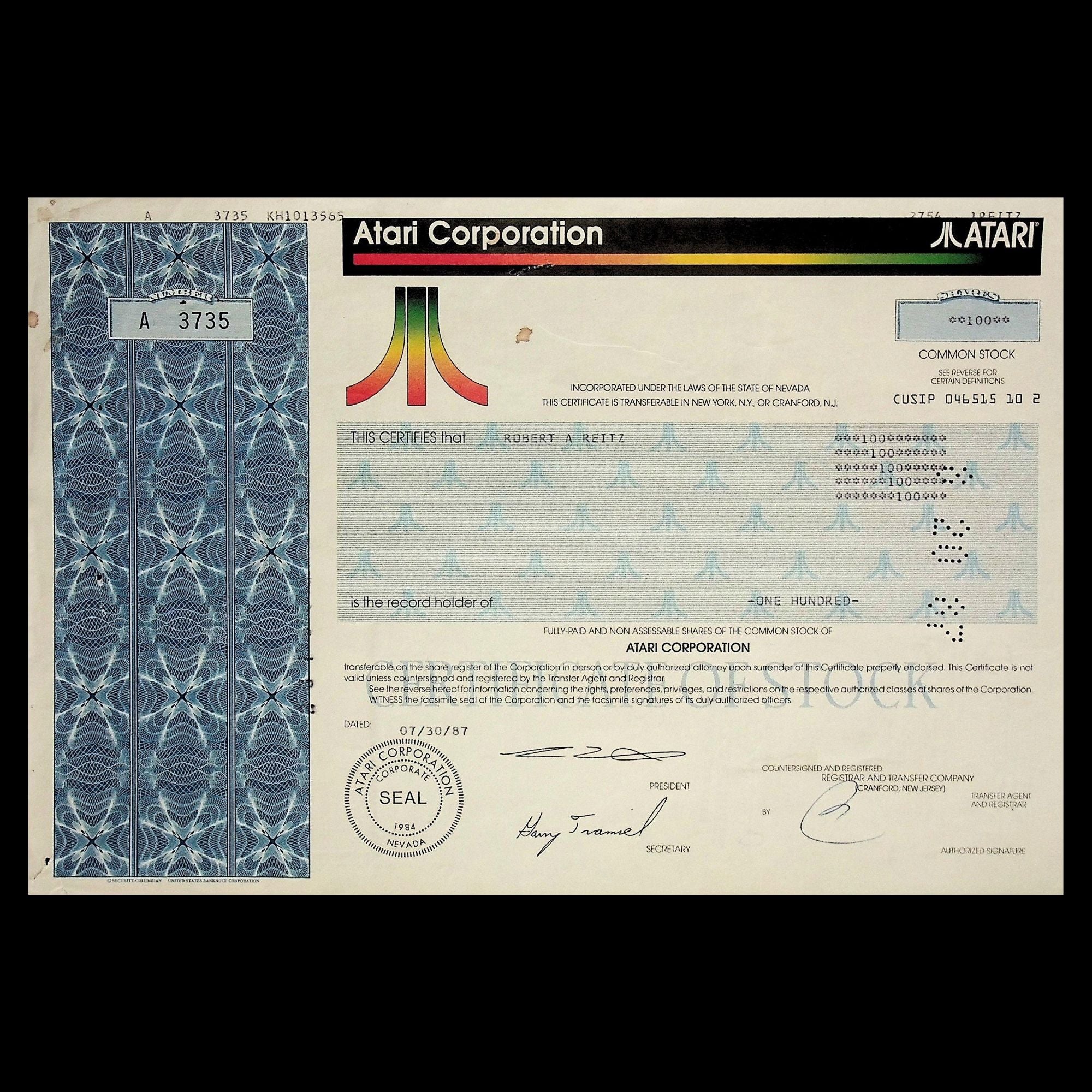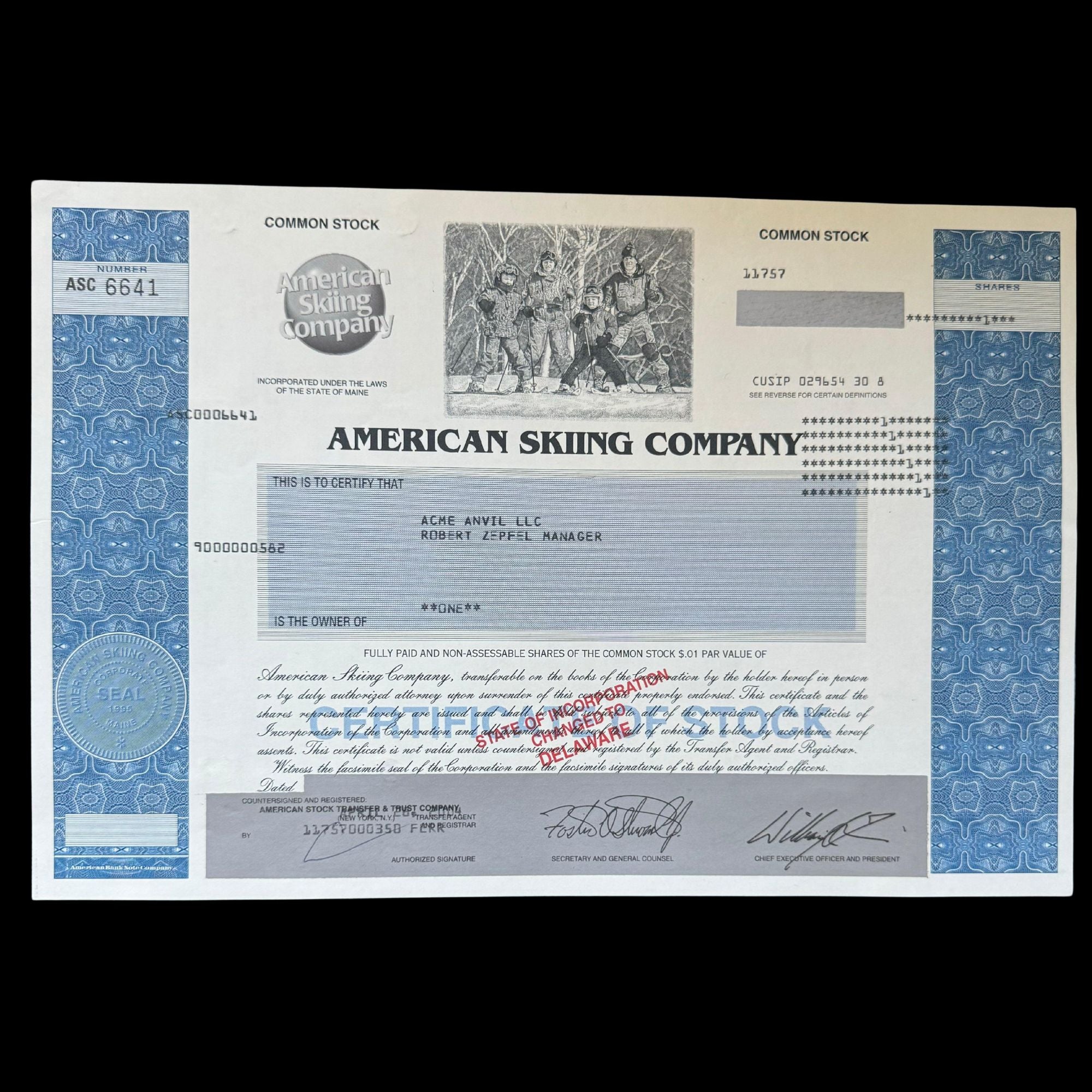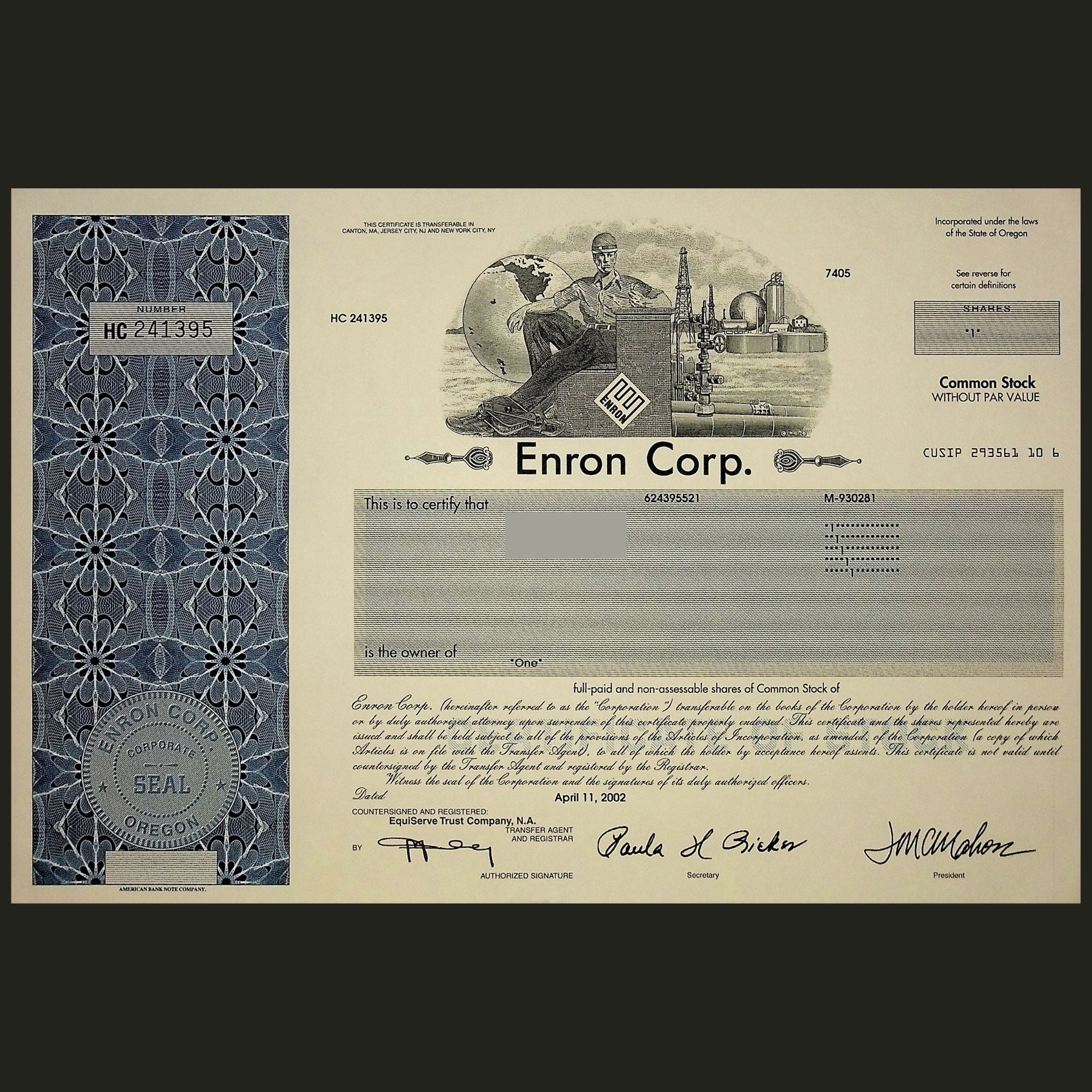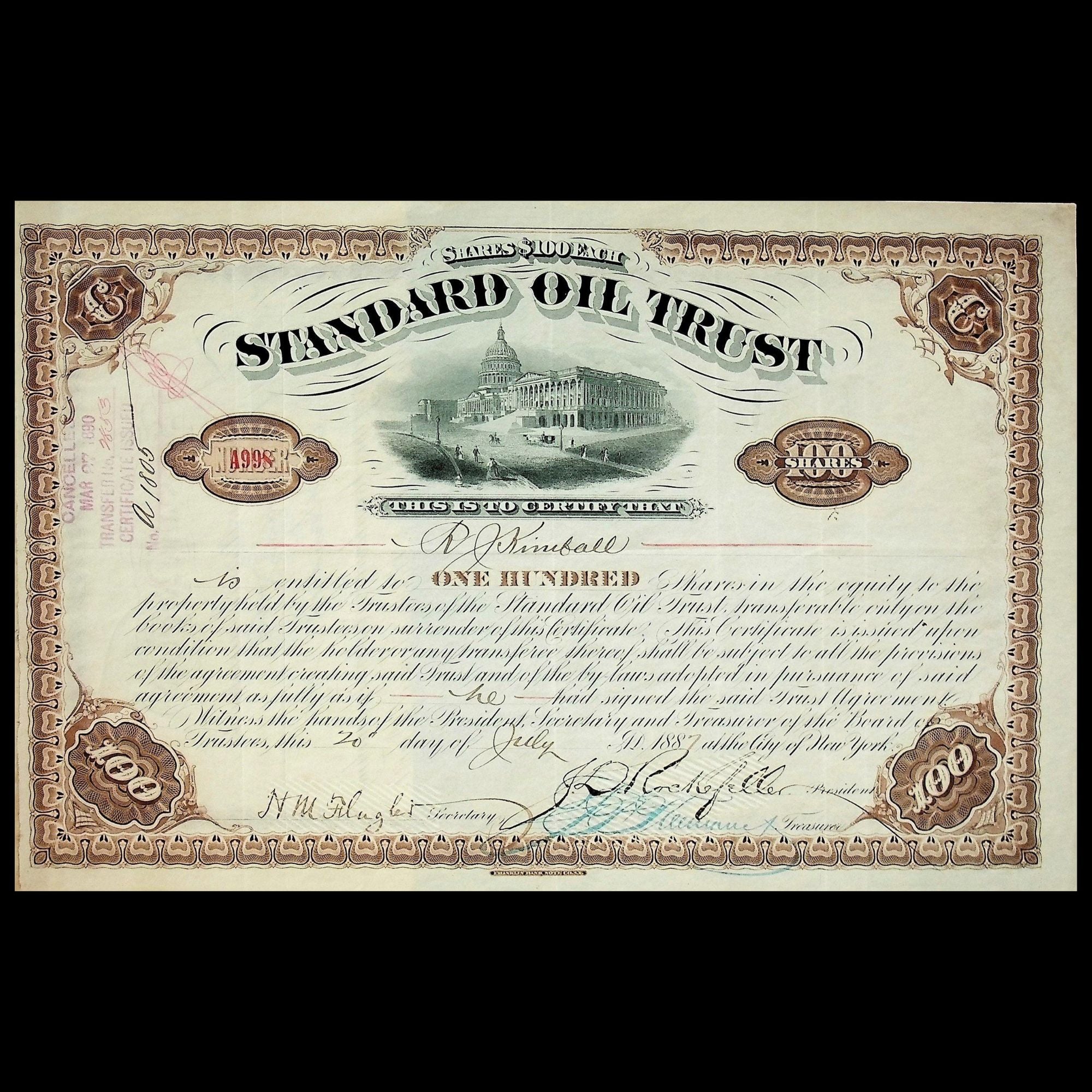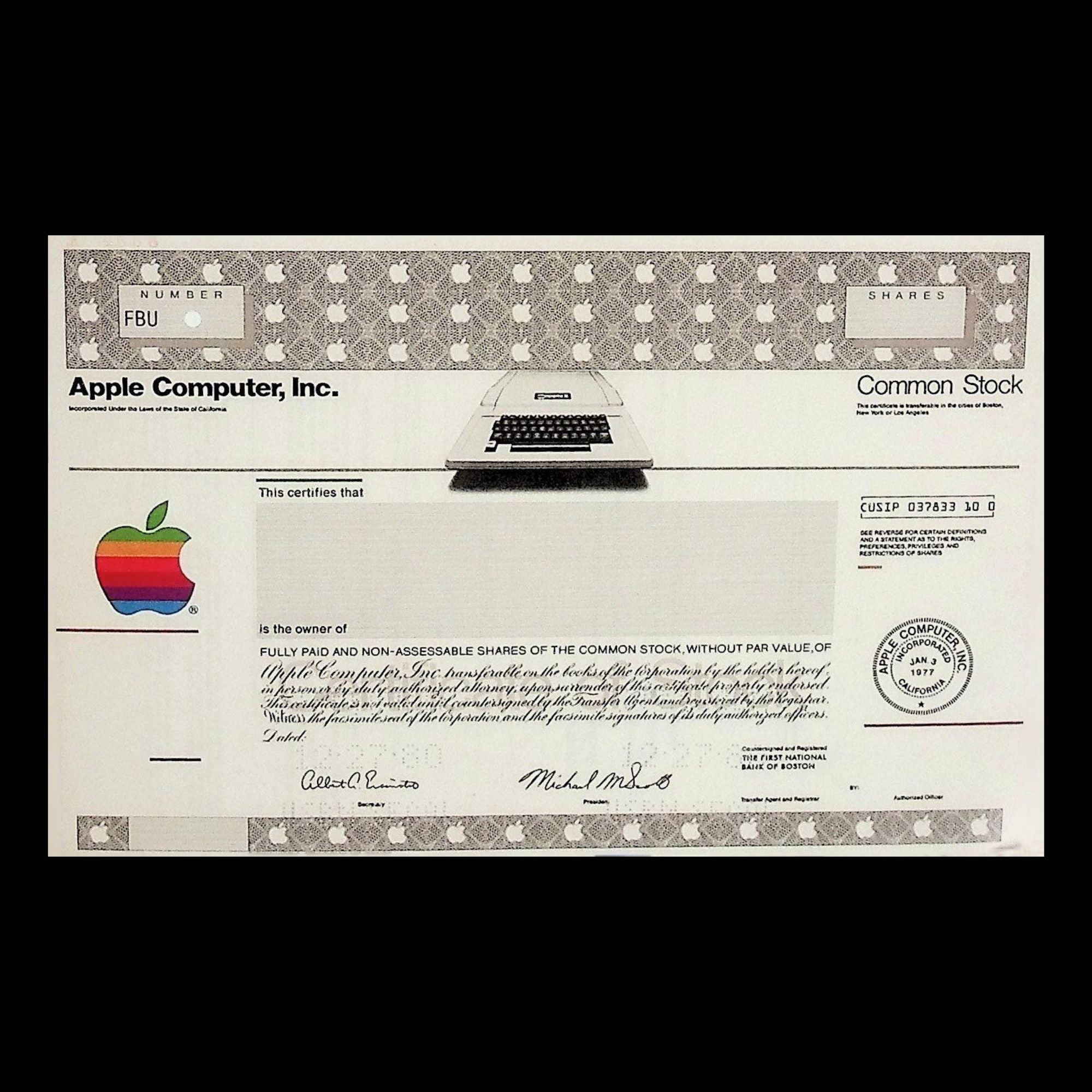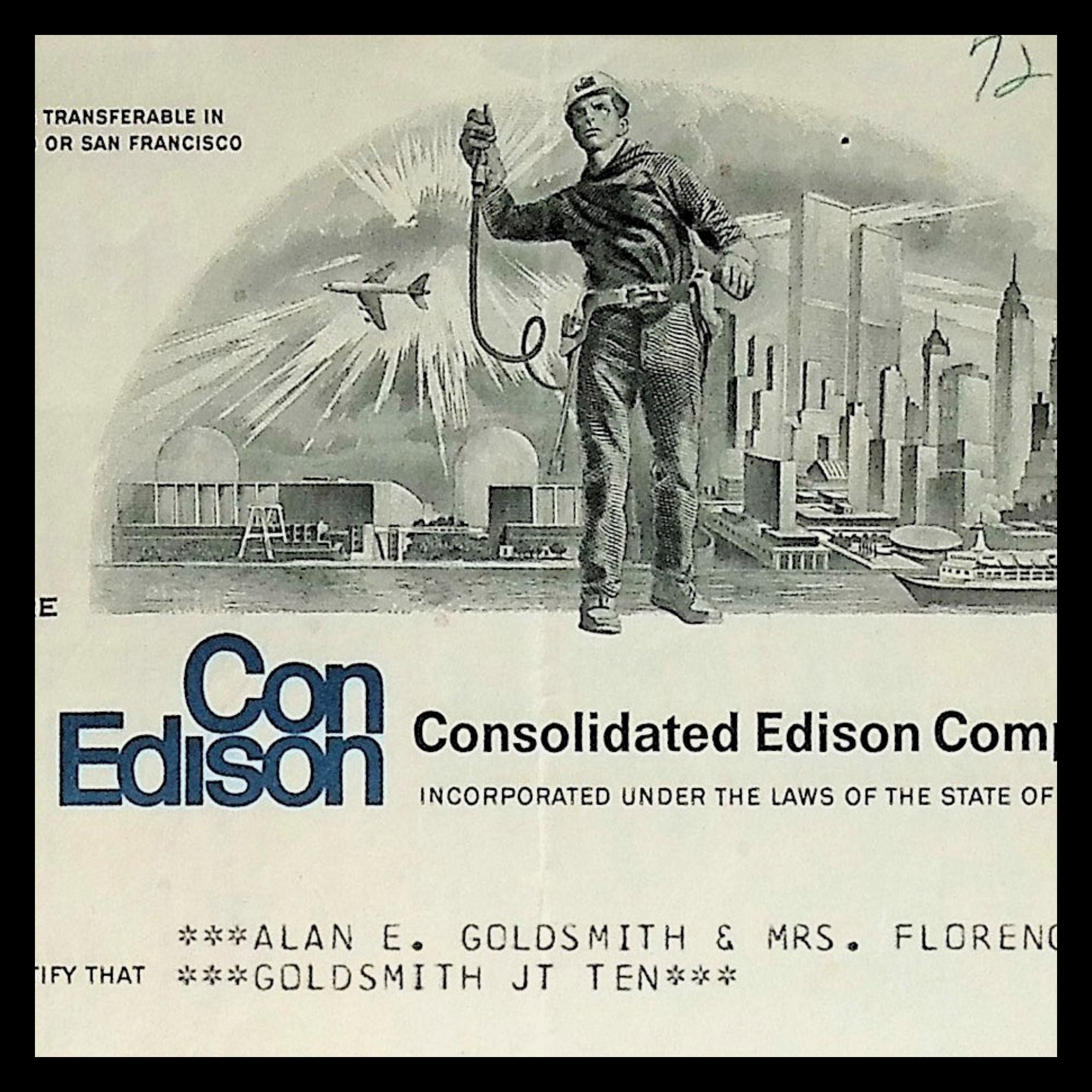The Atlantic Refining Company (now BP) Stock Certificate from 1960s
The Atlantic Refining Company (now BP) Stock Certificate from 1960s
Couldn't load pickup availability
Are the certificates authentic?
Are the certificates authentic?
Yes, all of the certificates we sell are authentic stock and bond certificates unless otherwise mentioned in the description. At one point in time, this certificate represented a share of of the company, or a bond receipt. These certificates have been removed from circulation and digitalized, as seen by cancellation holes, stamps and writing on the certificate. We offer these certificates as a collectable item, not a security.
Your choice of 4 different colors or the 3x combo pack of stock certificates from The Atlantic Refining Company, issued in 1960s, features cancellation holes, stamps, and handwritten annotations, indicating its authenticity and historical use. The certificate is adorned with a vignette of a woman with a globe in front of oil fields and a refinery.
The Atlantic Refining Company was founded in 1866 in Philadelphia, Pennsylvania as the Atlantic Petroleum Storage Company. By 1874, it had changed its name to Atlantic Refining and was purchased by John D. Rockefeller, becoming part of Standard Oil. Following the Sherman Antitrust Act, the Standard Oil Trust was broken up in 1911, and Atlantic Refining became one of the 35 companies separated from the trust.
In 1966, Atlantic Refining merged with Richfield Oil Company to form Atlantic Richfield Company, commonly known as ARCO. This newly formed company further expanded in 1969 by merging with Sinclair Oil Corporation. ARCO became a significant player in the oil industry, operating up to 1300 gas stations primarily in the western United States. The company was later acquired by BP in 2000, Andeavor in 2013, and Marathon Petroleum in 2018.
Materials and care
Materials and care
Here are some quick tips to preserve your certificate for decades to come.
Paper quality: Stock certificates were printed on a variety of certificate paper dating back to the mid 1800s. Most of these vintage collectable certificates have signs of used & wear , cancellation holes, pencil / pen writing, stamps, staples, adhesives, slight rips, missing coupons and other features.
Handling: Always handle the certificate with clean, dry hands or use cotton gloves to avoid transferring oils and dirt from your skin onto the paper.
Storage: Store the certificate in a cool, dry place away from direct sunlight, which can cause fading. Use acid-free folders or archival-quality plastic sleeves to protect it from moisture, dust, and physical damage.
Framing: If displaying the certificate, use a frame with UV-protective glass to prevent light damage. Ensure the certificate is mounted using acid-free materials to avoid any chemical reactions that could degrade the paper over time.
Avoid Exposure: Keep the certificate away from direct sun, extreme temperatures and humidity, which can cause the paper to warp or deteriorate. Avoid exposing it to pollutants, such as smoke or chemicals, which can cause discoloration.
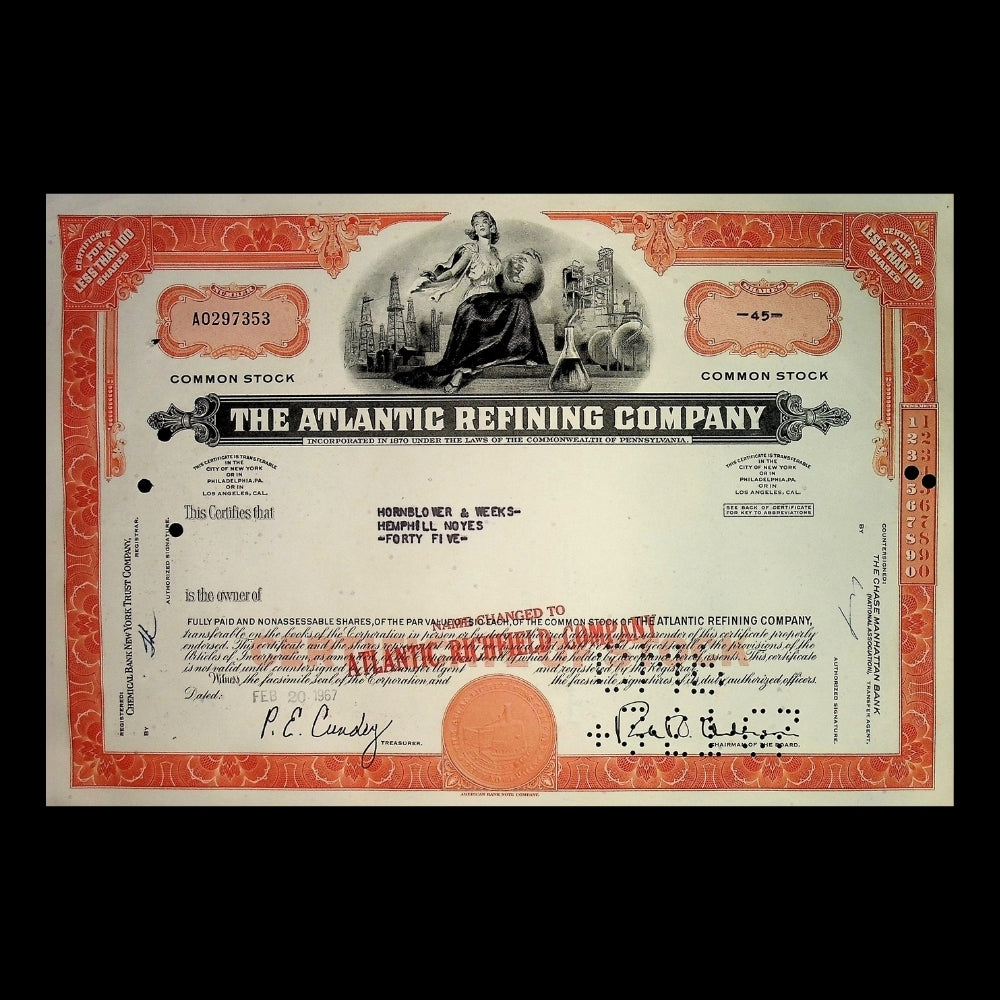
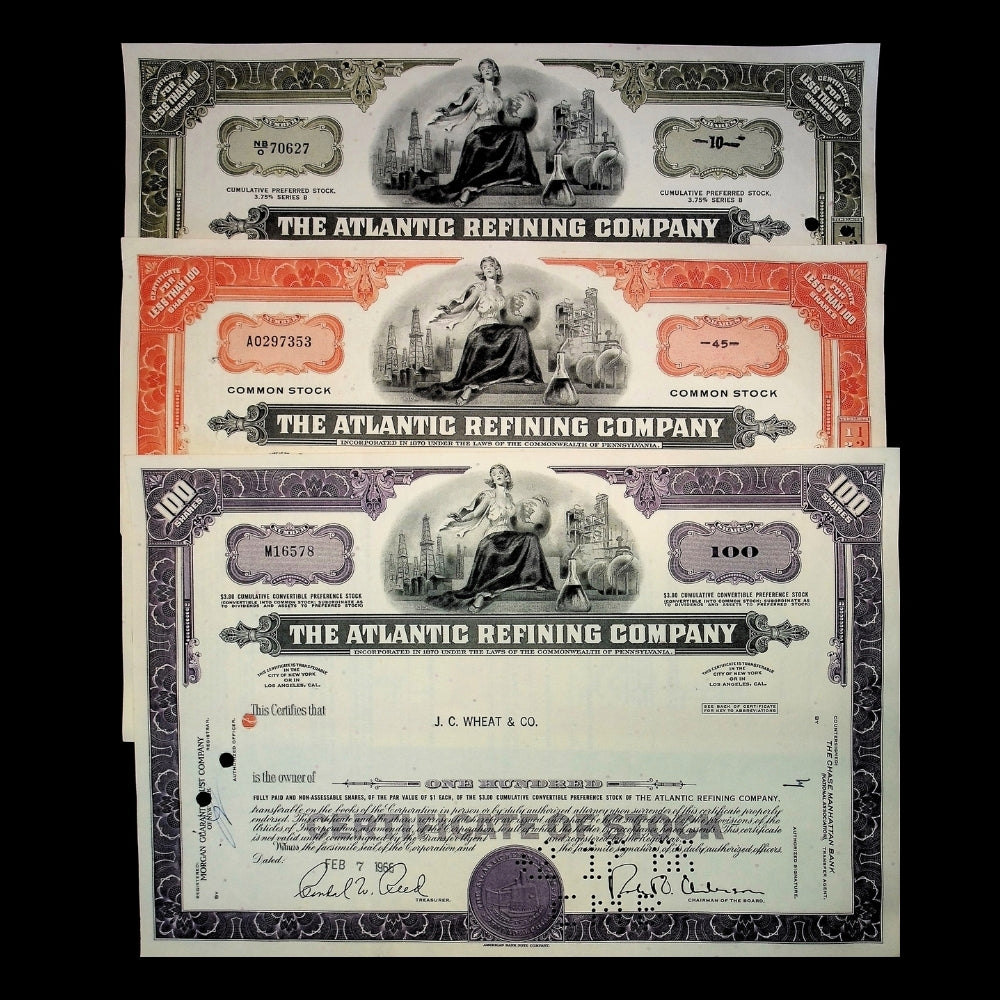
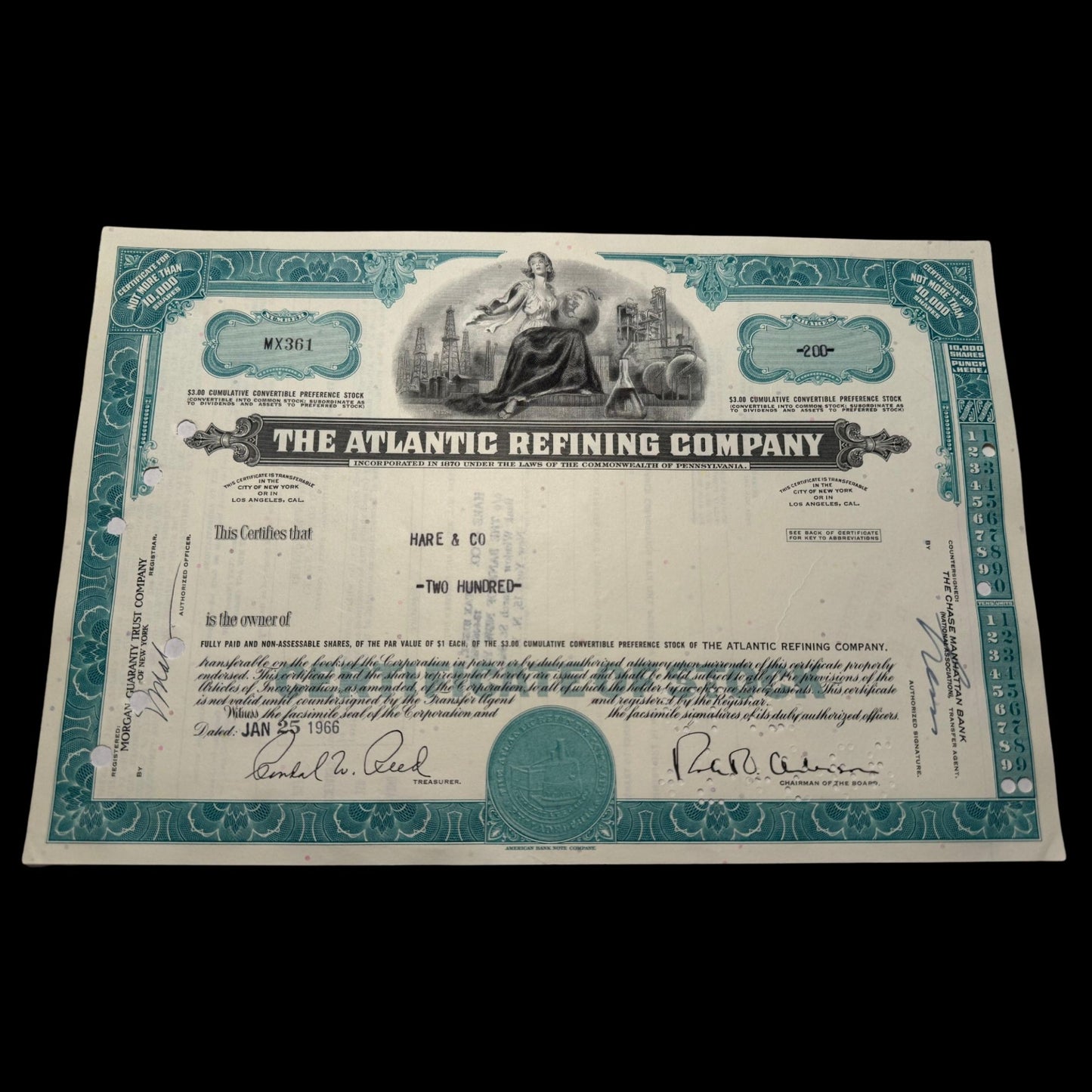
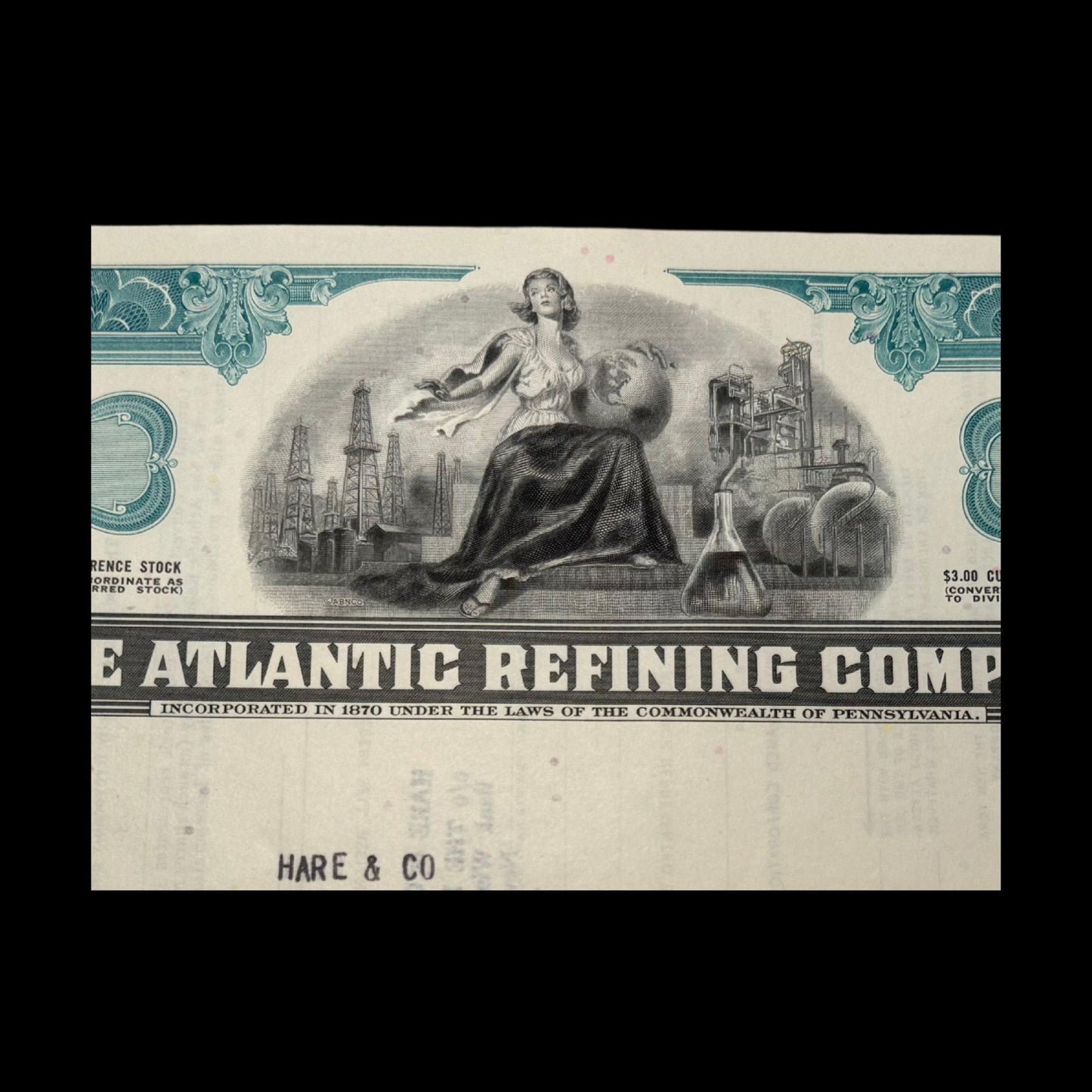
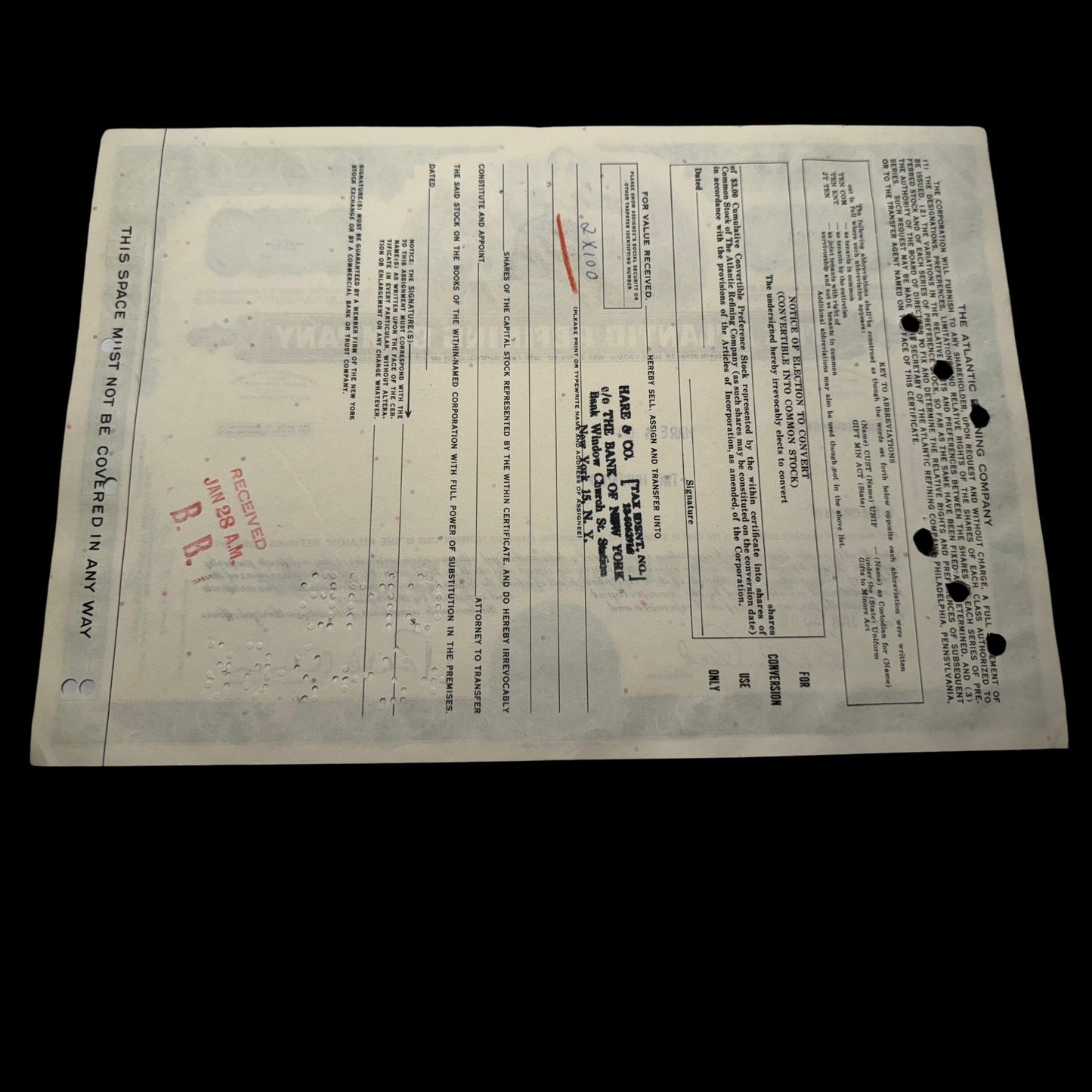
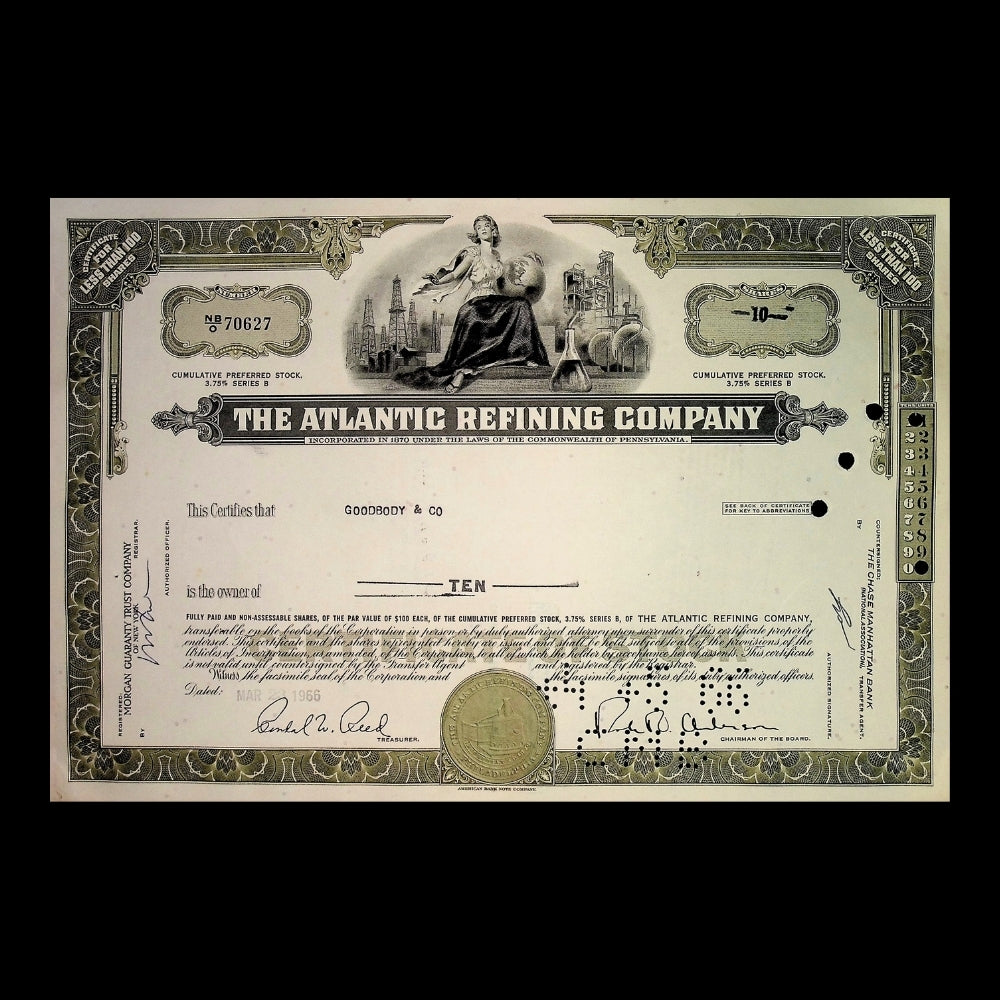
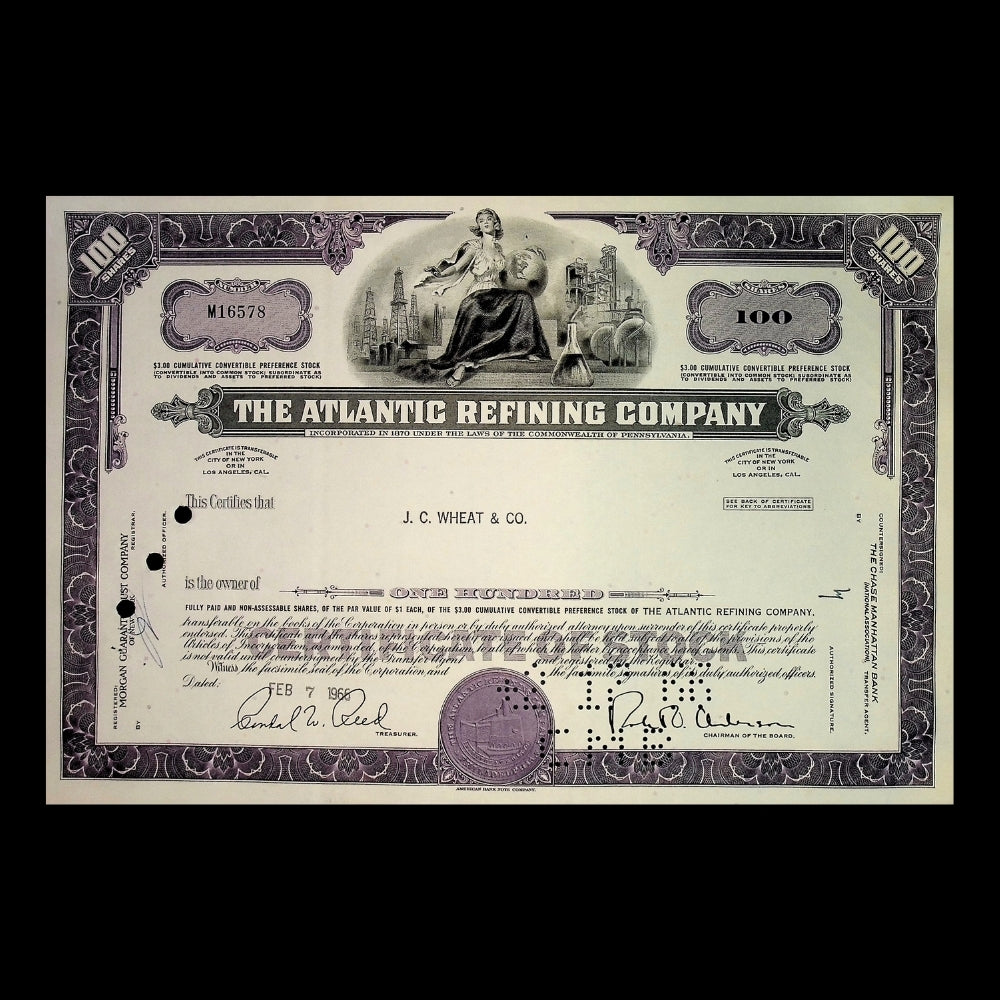
On orders over $50
Or your money back
Trust us to build their collection
Secure payment with all major providers
Trusted By Thousands of Collectors
Let customers speak for us
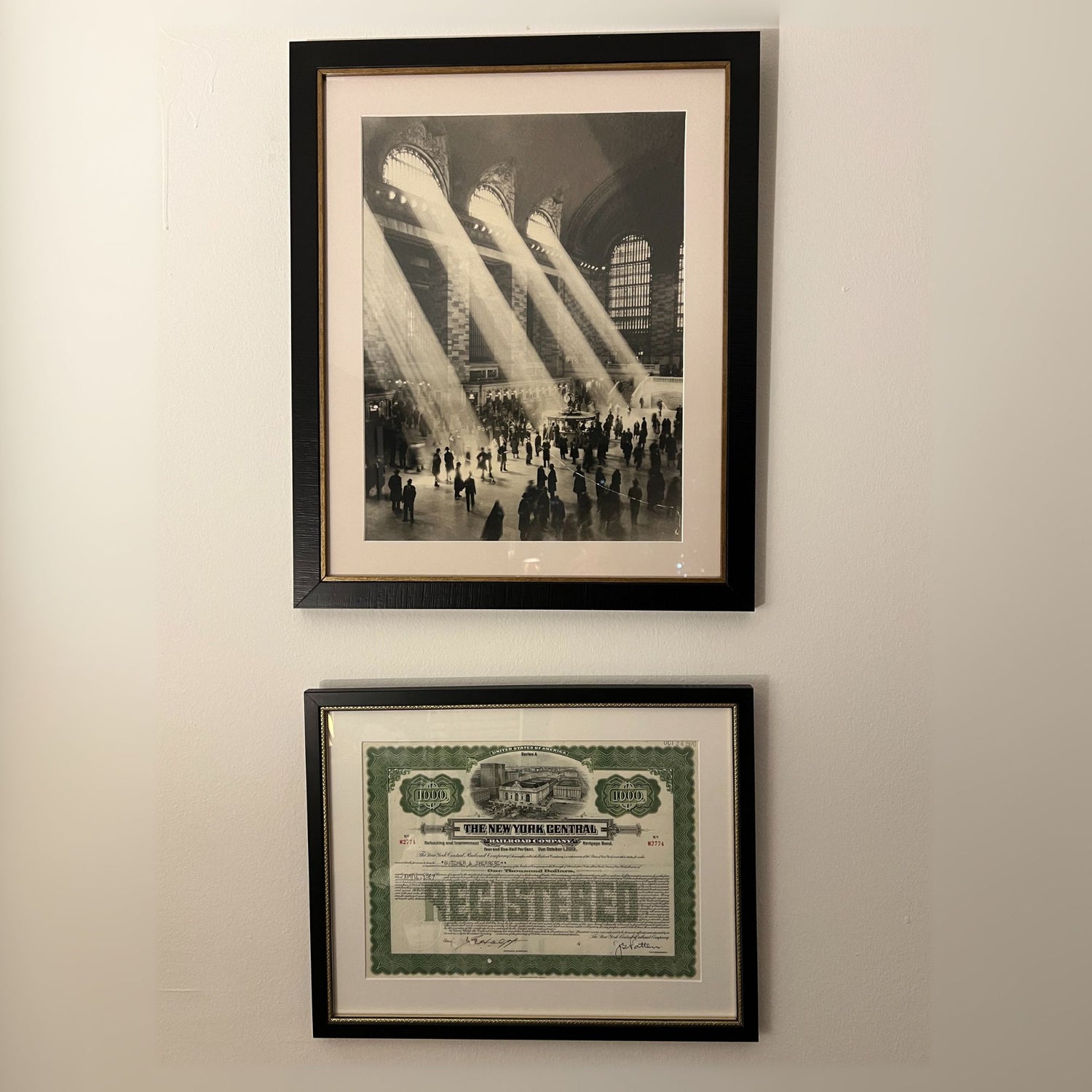
Art with a Backstory
Every Certificate Tells A Story
Turn rare stock and bond certificates into timeless décor. Piece showcases bold colors, engravings, and historic signatures perfect for an office, library, bar, common area, museum & more.

Orders Ship Daily
Direct From Wall Street's Archives
Orders are shipped flat with care, tracked & insured with USPS, in a strong, rigid, protected envelope. Daily fulfillment Monday - Thursday from NYC.
Railroad Stock & Bond Certificate Collectable Bundle Five Pack - 4x Stocks & 1x Bond
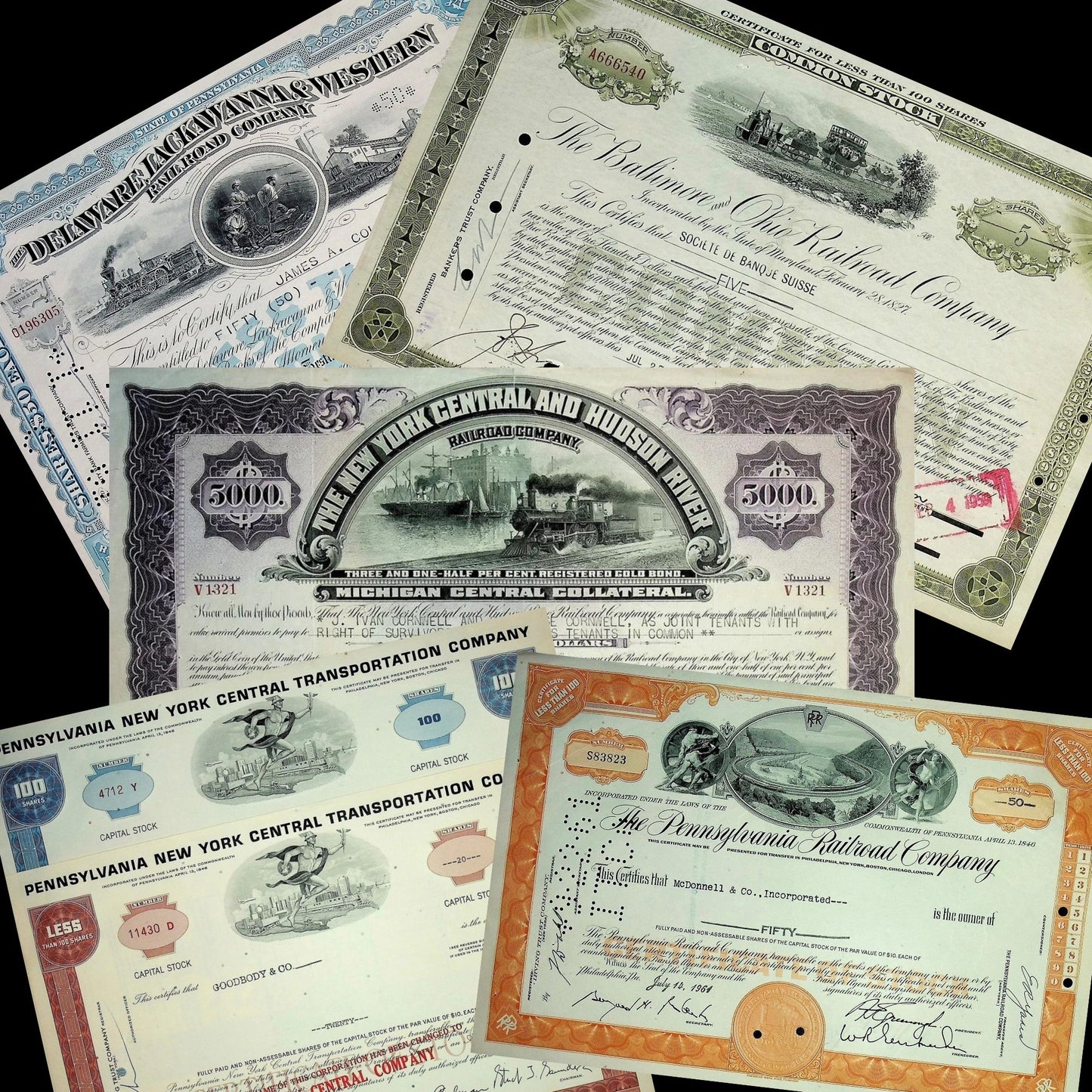
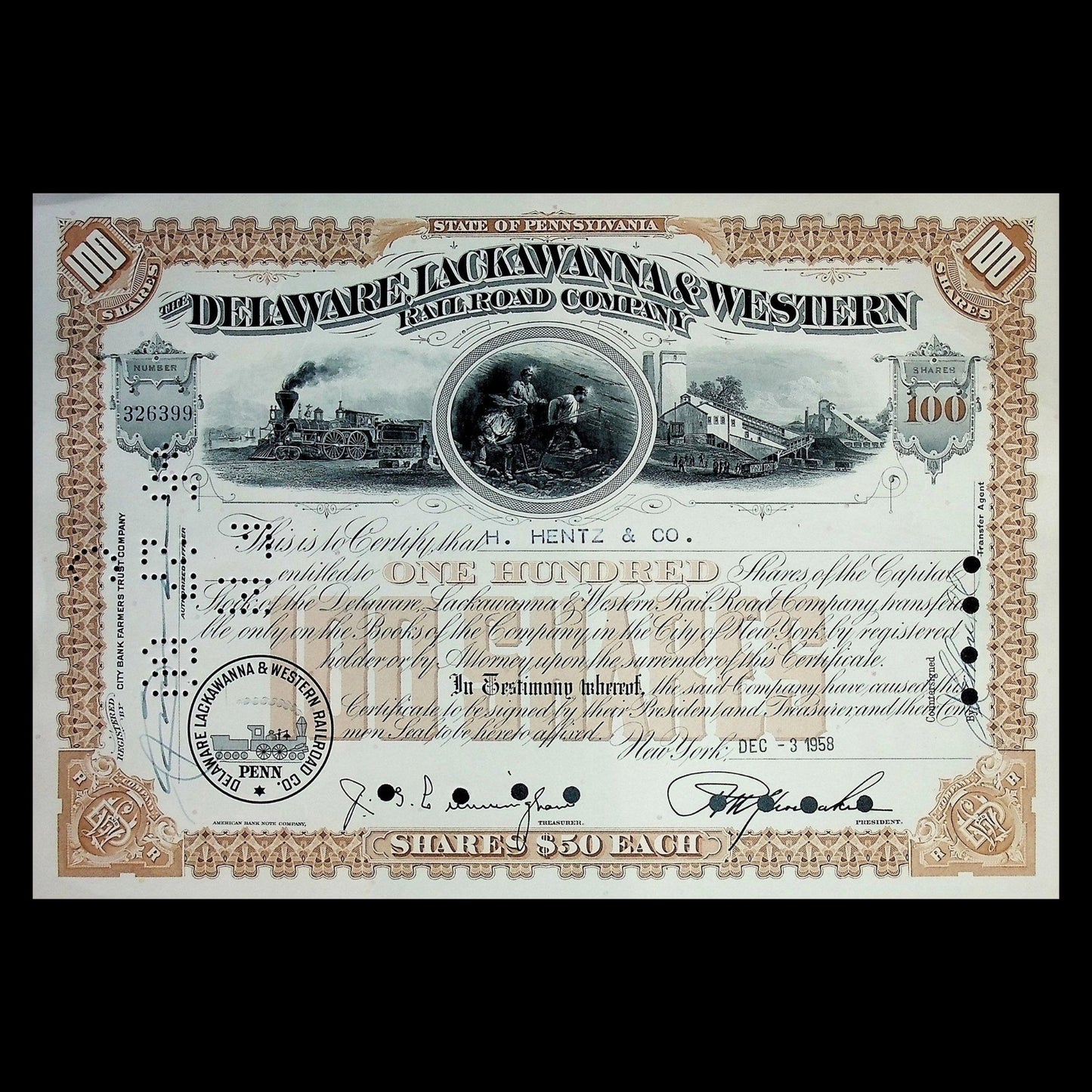
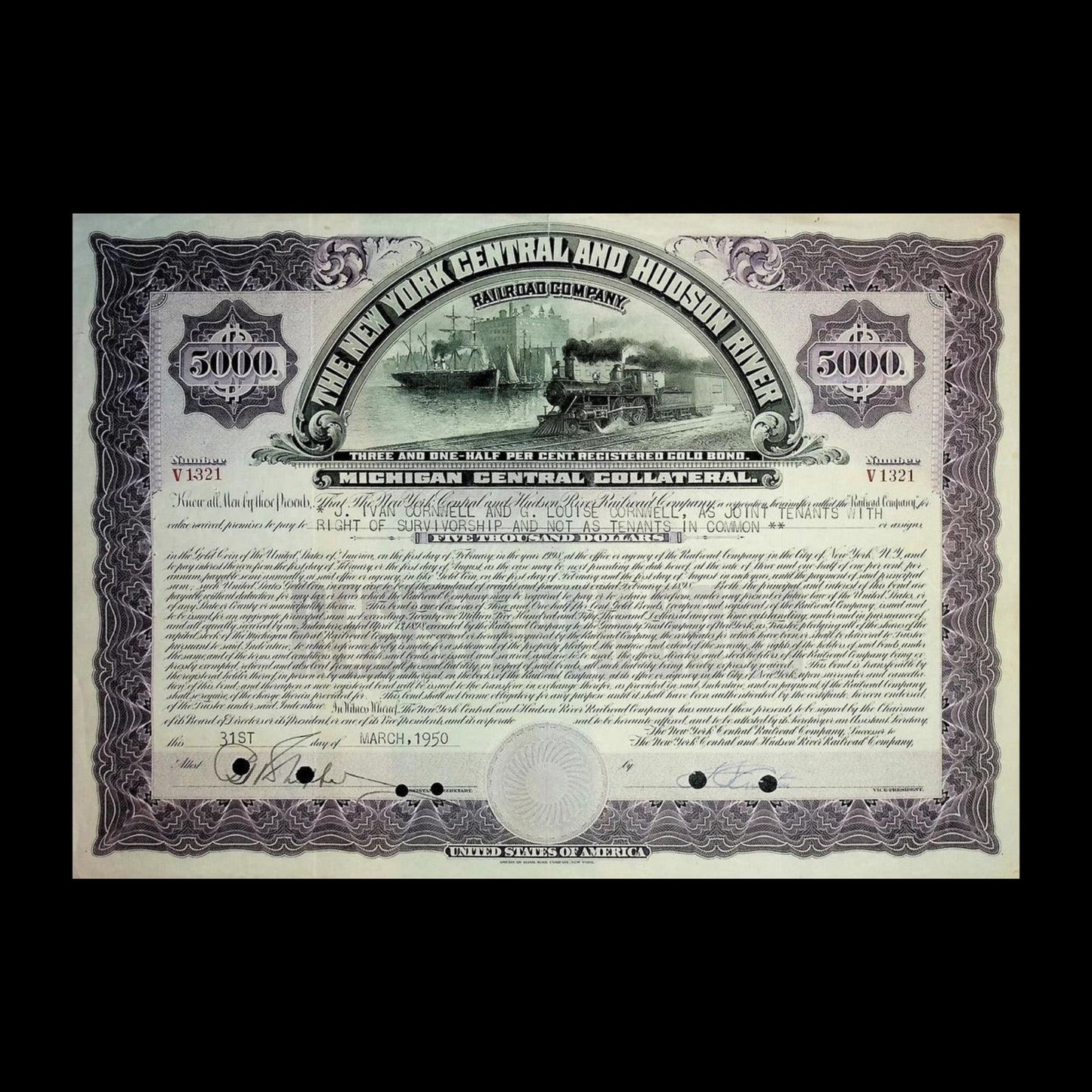
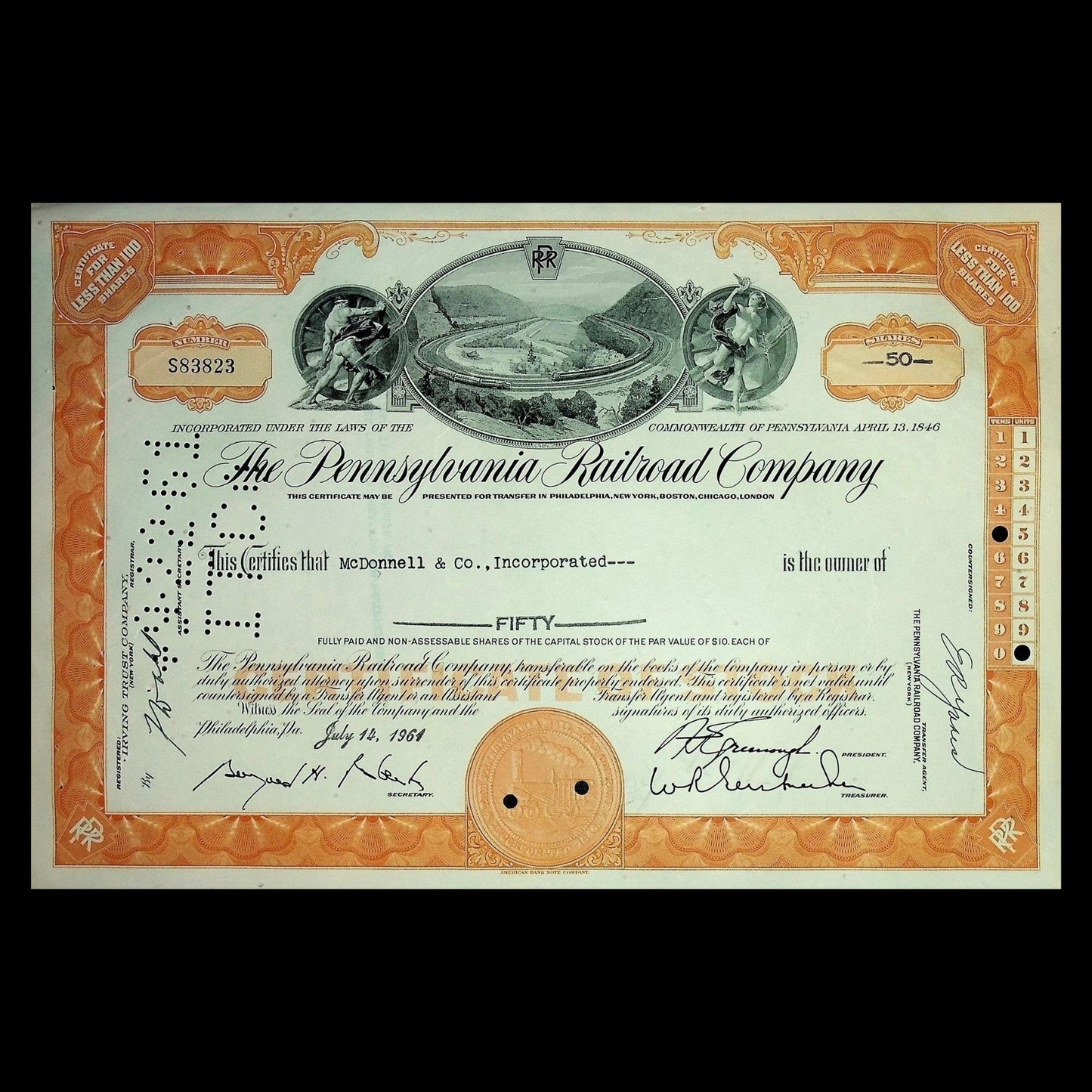
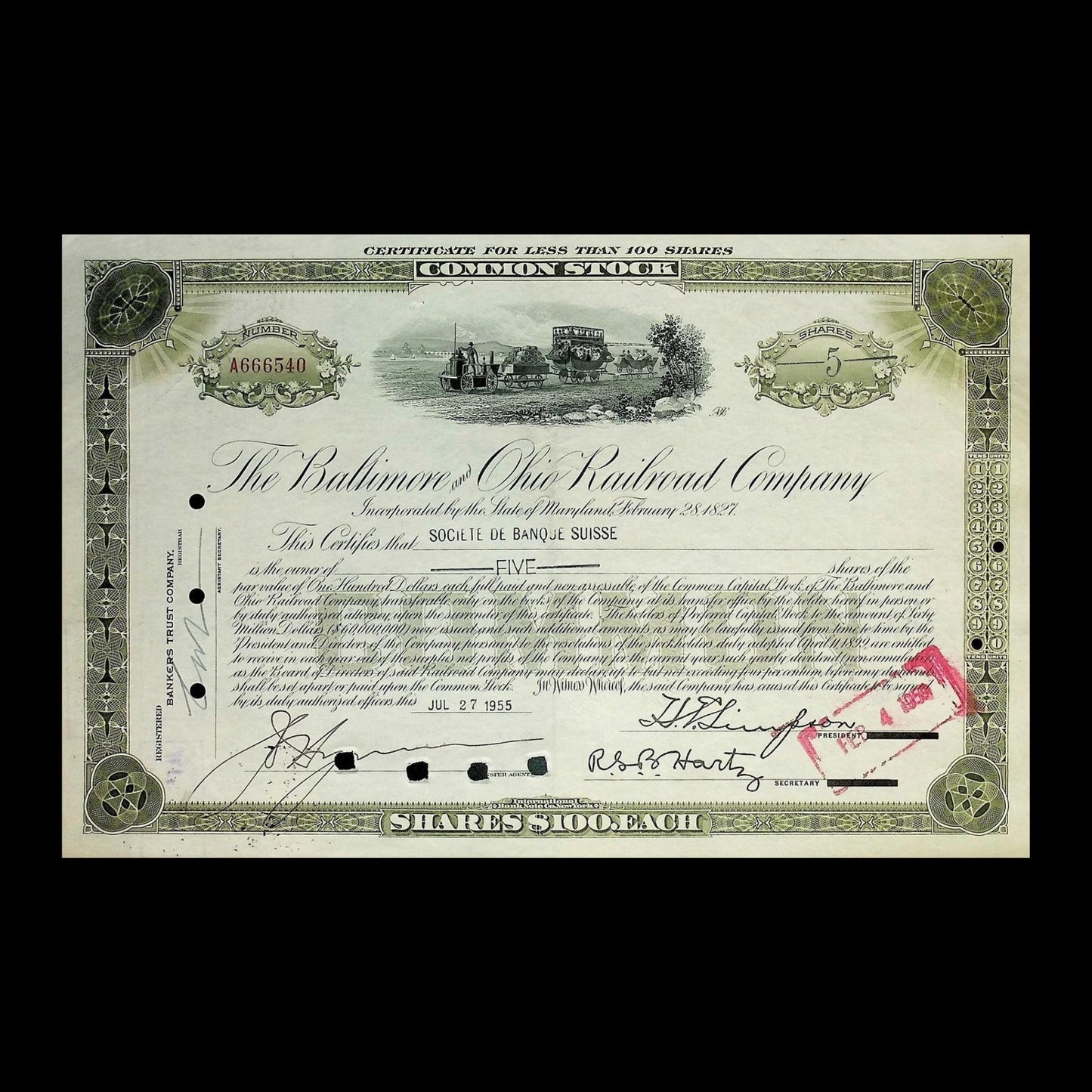
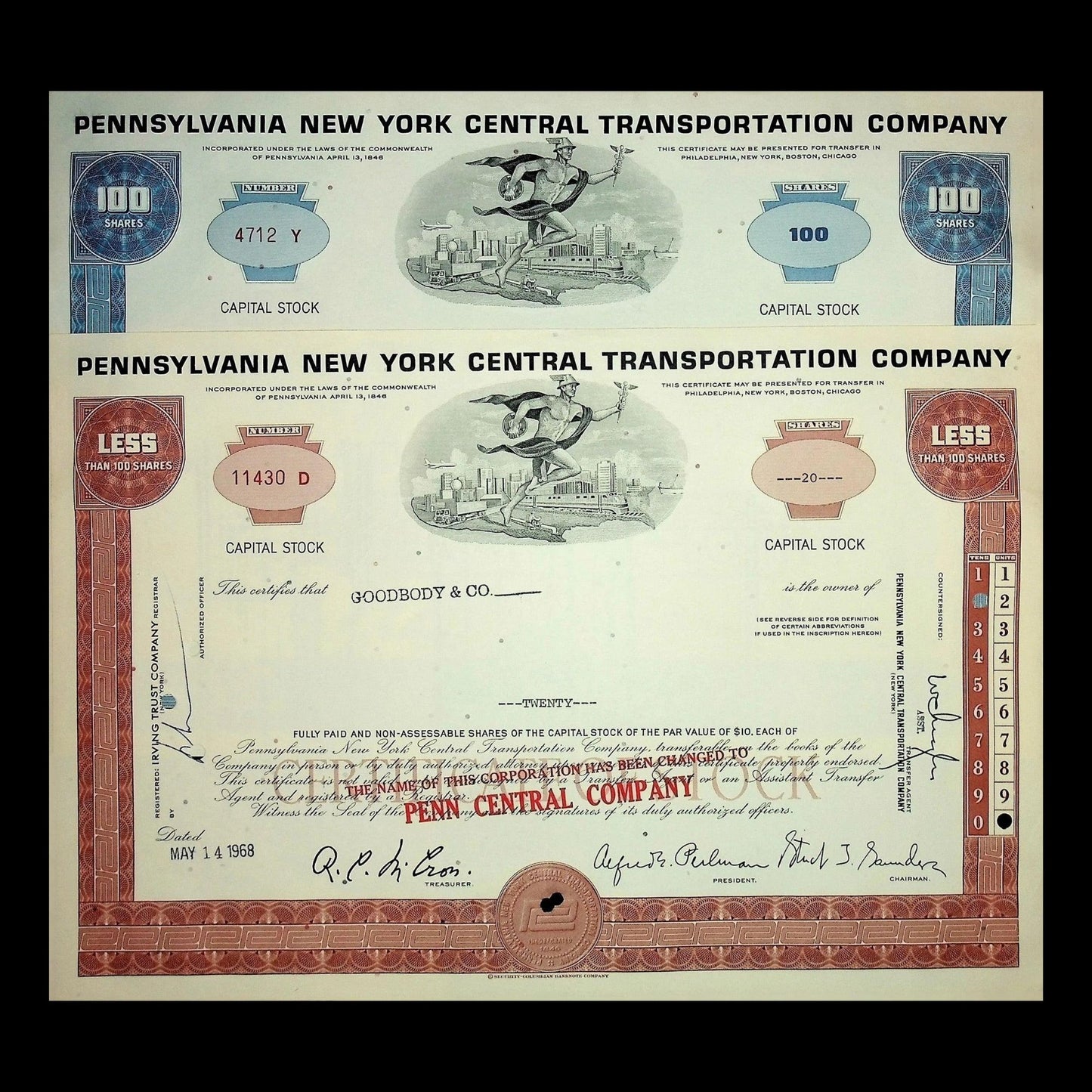
Discover 1,000s of Wall Street Collectables
Explore Our Collections
-
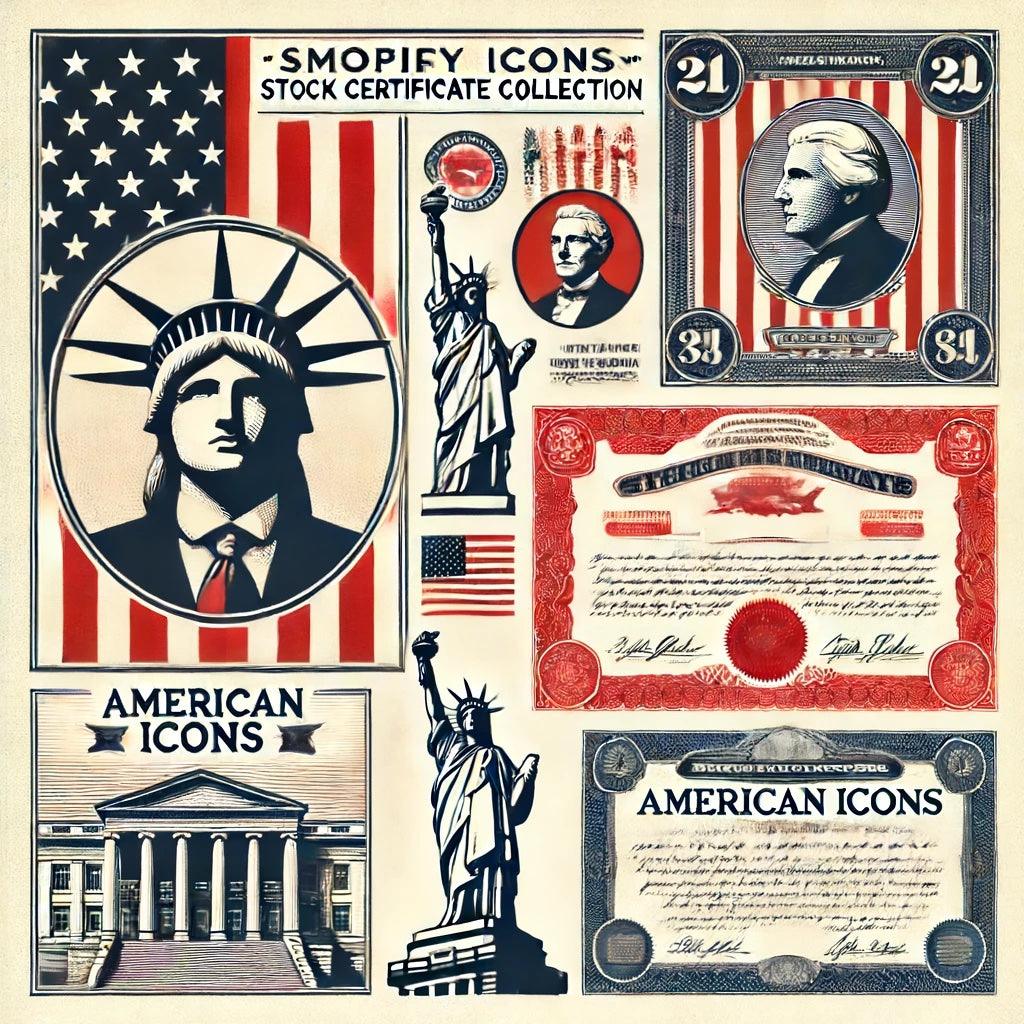
American Classics
Showcasing the evolution of American industry through beautifully engraved certificates from iconic...
-

Banks, Insurance & Investment
Discover the rich history of American finance with our collection of authentic...
-

Food & Drink
Collectible Food & Drink Stock & Bond Certificates for Sale - Hershey's, Nabisco,...
-

Transportation
Discover our collection of collectable stock and bond certificates for sale from...
-
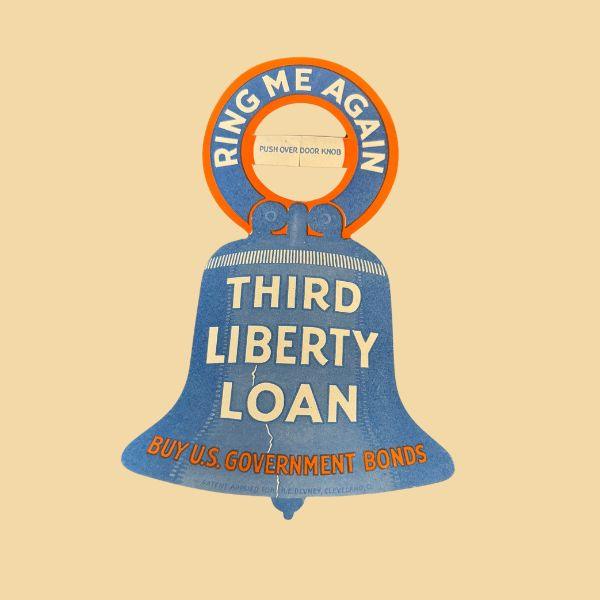
World Wars
Discover our unique collection of World War-era bonds and Disney wartime memorabilia,...







